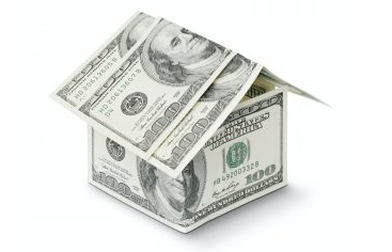|
Article by: Guest Writer Sally Norton With the market being especially hot lately, stumbling upon an affordable house could prove to be more challenging than you might have emancipated. Still, now is not the time to be discouraged. If you are determined enough, you will be able to acquire your dream house. You might not have enough money lying around to pay for it in full, but there are other creative ways to finance a home purchase. Ones that we're just about to touch upon. Creative Ways To Finance a Home Purchase That Can Get You The House Of Your Dreams You wouldn't need to think twice about financing your home in an ideal world. Unfortunately, though, the world we live in is anything but ideal. When the lack of money hits you, it's time to get creative. Think outside the box to come up with a way that can get you the property you want without leaving you penniless. Take Out a Mortgage Perhaps not the most creative financing option, but certainly the most popular one, is to take out a mortgage. Bear in mind, however, that not everyone who applies will get approved. Mortgage lenders tend to be quite strict and typically won't lend to those with a credit score lower than 620, nor those whose debt-to-income ratio is below 50%. For people in their 20s, acquiring a mortgage could prove impossible, considering their credit history is short or practically non-existent. Furthermore, they are often drowning in student debt, which prevents them from qualifying for a house loan. On the other hand, conventional mortgages prove an ideal financing solution for those with steady earnings, strong credit history, and savings. The upfront costs fall on the higher side. But the monthly installments are as costly as the average rent from there on out. The mortgage might not be the most creative of creative ways to finance a home purchase, but it remains the most common one. Apply for a Government Loan The requirements for government loans are typically more lenient than those of conventional mortgages. On top of that, there are state and government programs out there that provide closing costs and down payment assistance. To be taken into consideration for a loan granted by the Federal Housing Administration or Department of Agriculture, for instance, you'll need a credit score of 500. You'll probably be required to get additional mortgage insurance, too. Nevertheless, when considering the down payment assistance, this type of financing happens to be just perfect for those with low-to-no savings. Owner Financing On rare occasions, sellers might be willing to agree to owner or seller financing. In a nutshell, this type of financing allows buyers to pay the home off through monthly installments that they pay directly to the seller. It is something to consider for those that cannot take out a standard loan. However, it is also an agreement to be wary of. Seller financing typically comes with a gnarly down payment and enormous interest rates. Buyers are also usually required to have the house fully paid off within five years. While definitely among the creative ways to finance a home purchase, seller financing is certainly not for everyone. Seller financing is an agreement between a seller and a buyer in which a buyer commits to paying monthly installments to the seller until they've fully paid off the house. Rent-to-own Found yourself a house you believe is the one but can't afford it just yet? Well, if you strike the rent-to-own agreement with the owner, then you might as well get ready to move into it! You'll be able to adapt the house to your liking and get necessities every household needs on the premises that the place would be yours once. But first, what exactly does "rent-to-own" mean? Well, it means that, initially, you'll be living in the house as a tenant and paying rent until you've saved up enough money to buy it. In certain situations, a landlord/seller could agree that a portion of the rent you pay covers a part of the purchase price - thus helping you pay for the house sooner. As part of the rent-to-own agreement, "option money" will need to be put down upfront. This is a fee that ranges from 2% to 7% of the home's value. Depending on the deal, it might or might not cover a part of the sale price. Bear in mind that, should you choose to abandon the sale, recouping the option money isn't something you'll be able to do. Enlist the Help of Crowdfunding If everything else fails, family, friends, and even strangers could help you get your hands on your dream house. How? Well, through crowdfunding websites. These allow you to share your story with the world, hoping it would reach the hearts of those in a situation to donate. Every donation matters, no matter how small. In fact, so does a share. An excellent tactic to generate an audience and, therefore, get more donations is to invite people to share your story all over the Internet. Who knows, with the help of generous people, you could be looking at raising down payment money and browsing through Verified Movers for adequate relocation assistance before you know it. Raising money for a down payment, for instance, could be done through crowdfunding. Search for an Investor There are plenty of homes out there that are sold as-is. They require adapting to be habitable but hold serious potential. As such, they could prove interesting to an investor, but to you as well. If you have the time and motivation to fix one up but lack money, you could search for an investor to help you financially. In turn, you'd be agreeing to live on the premises only to move out sometime in the future, thus allowing the said investor to flip the house. You could be looking at getting a portion of the profits generated, as well. Provided that you acquire the funds, you could also end up buying the house from the investor. Don't Be Hasty While creative ways to finance a home purchase might help you acquire a property faster, that doesn't necessarily mean you should. At least, not yet. Being a homeowner is a task that holds a lot of responsibility and is more than just having your name on the deed. After you've signed the deal, property tax, homeowners' insurance, and a whole lot of other fees will be yours to pay. If you and your wallet aren't ready for that yet, though, you might be better off postponing the purchase.
0 Comments
Your comment will be posted after it is approved.
Leave a Reply. |
AuthorJason Gelios is a Husband and Father. After that, a Top Producing REALTOR®, Author of the books 'Think like a REALTOR®' and 'Beating The Force Of Average', Creator of The AskJasonGelios Real Estate Show and Expert Media Contributor to media outlets across the country. Archives
July 2024
Categories |






 RSS Feed
RSS Feed